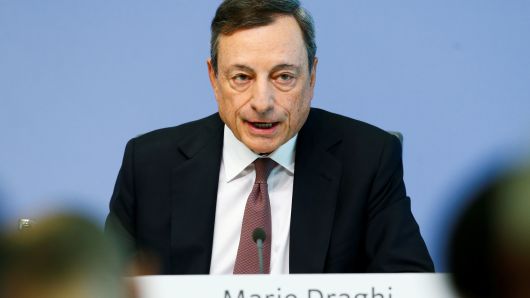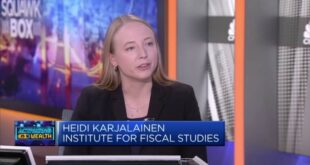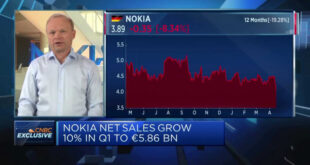
Ralph Orlowski | Reuters
European Central Bank (ECB) President Mario Draghi addresses a news conference at the ECB headquarters in Frankfurt, Germany July 20, 2017.
Mario Draghi, the president of the European Central Bank (ECB), hinted at the possibility of inflation not rising as quickly as expected due to euro zone firms dealing with a slew of uncertainties.
“If firms start to become more uncertain about the growth and inflation outlook, the squeeze on margins could prove more persistent,” Draghi said at a banking conference in Frankfurt Friday.
“This would affect the speed with which underlying inflation picks up and therefore the inflation path that we expect to see in the quarters ahead.”
Draghi’s speech was generally positive about the region and he reiterated that the central bank’s massive crisis-era bond-buying scheme is still due to be wound down at the end of this year. He said there was no reason why the current expansion in the euro area — which is now in its fifth year — should abruptly come to an end, adding that the economic cycle was resilient.
However, the lingering doubt Draghi hinted at was how cooperates could unwind recent pay rises due to uncertainties on growth. This would then have an knock-on effect for the central bank’s own inflation forecasts which could potentially also alter its future policy actions. The ECB is due to start raising ultra-low interest rates at the end of summer 2019 but many market watchers have doubts about the exact timing of the first hike.
Earlier on in his speech he mentioned issues with global trade, name checking protectionism in particular. He also mentioned the temporary effects of weather, sickness and industrial action affecting output in a number of countries. More recently there was disruption for car production due to the introduction of new vehicle emissions standards, the Italian economist added. Euro zone growth has stalled slightly in recent quarters and German gross domestic product (GDP) was surprisingly weak in the third quarter.
He added that at its last meeting in October, the ECB’s Governing Council noted that “uncertainties surrounding the medium-term outlook have increased.”
“When the latest round of projections is available at our next meeting in December, we will be better placed to make a full assessment of the risks to growth and inflation,” he said.
 EU News Digest Latest News & Updates
EU News Digest Latest News & Updates


